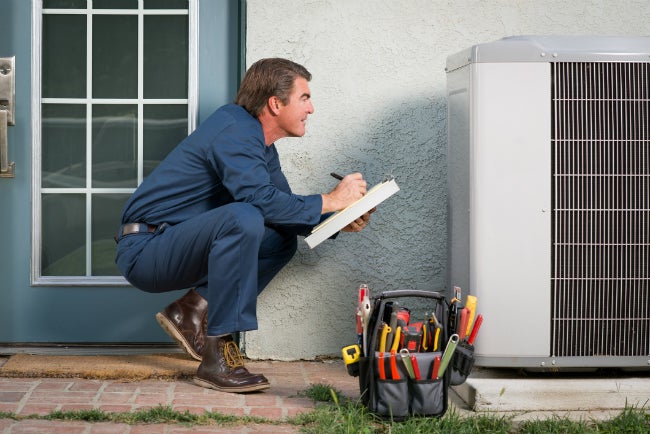Out of the many factors the experts considers when determining the necessary tonnage for a particular house, the 5 criteria listed below may be the most essential. To help you make a well-informed choice, we will delve into this topic a little deeper below.
Why the size of air conditioner matters?
Even though it may run constantly and raise your energy expense, an undersized AC unit is unlikely to adequately chill a house. It just doesn’t have the power to get the job done. However, some research suggests that larger size isn’t always preferable when choosing a new air conditioner.
A too powerful air conditioner will chill your home rapidly, but then turn off automatically after the temperature is stabilized. It might not seem like a major deal at first, but eventually you’ll realize that your house just isn’t as cozy as you had hoped. If a massive unit quickly cools the air and then shuts off, a significant percentage of the humidity will remain unresolved.
The appropriate system size is determined by taking into account all relevant factors, such as the home’s floor plan, its location, and its building style.
Factors affecting AC size:
-
Ceiling height:
When constructing a house, certain measures must always be adhered to, including the ceiling height. Having higher-than-average ceilings might make a home feel more open, but this is not always the case. If the ceiling is higher than the conventional height by more than four feet, the room or house will be more difficult to heat and cool.
There is more air to condition in a space with a higher ceiling. A lack of cold air may now be a problem in rooms with higher ceilings compared to those with regular height ceilings. If you want to chill a room or house with high ceilings, you’ll need an air conditioner with a lot of power.
If the BTU rating of an air conditioner is inadequate, it will not be able to effectively cool a room with a higher air volume. A smaller air conditioner or one without enough BTU will force the unit to work harder, increasing the cost to cool the space.
-
Type of room:
The size of the air conditioner you require depends not only on the square footage of the space, but also on how you want to use it. Installing an air conditioner in a kitchen, for instance, will require a 4,000 BTU increase. Rooms or spaces with heat-producing appliances will require more effort from your air conditioner.
East and west facing rooms receive the most sunlight and can get rather warm during the summer months. All of these considerations are important when determining the appropriate size of air conditioner for a given space.
-
Number of occupants:
A person’s activity level can enhance the amount of heat their body emits, yet everyone gives off some heat regardless. At rest, the human body emits heat at a rate of 100 W. If there are going to be more than two people in the room at once, the air conditioner’s cooling capacity should be increased by 600 BTUs per hour for each additional occupant.
Because of the increased heat generated during exercise, air conditioning in a gym will require a more powerful unit than one used in a bedroom. Think about everything so you don’t end up with an AC that’s too big or too small.
-
Location:
Windows add light and airiness to a space, but they can also have a significant impact on the temperature within. You should expect your room to be cooler in the winter and warmer in the summer due to the increased transfer of heat and cold from outside to within.
Your air conditioner’s efficiency is drastically impacted by the quantity and size of windows. More and larger windows will make your room warmer in the summer, requiring your air conditioner to work more. Get an air conditioner with 10 percent more BTU if your room gets direct sunlight during the day.
-
Room insulation:
Insulation prevents heat or cold from escaping a room or other enclosed place. However, the size of the air conditioner you’ll need will depend on how much heat or cold you need to keep in or out of the room. A well-insulated room will require less cooling power from the air conditioner.
However, the insulation of your room is affected by a number of elements, including the building material used, window coverings, the installation of insulation materials, the distance between the doors and the floor, your flooring choice, and more. The more effective the insulation, the less effort is required to maintain a comfortable temperature inside.
Professional sizing:
An HVAC expert will do more than just evaluate your space to determine what size air conditioner you need. The specialist will use his or her training and knowledge to assess your home’s design and evaluate whether or not it will affect the new system’s efficiency and effectiveness.
After carefully weighing all of the considerations, they will recommend an air conditioning system that is custom-tailored to your home. This will not only guarantee that your home is kept at a comfortable temperature, but that your air conditioner lasts as long as possible. Consult an HVAC technician if you are thinking about installing a new air conditioner.
There may be a wide variety of inexpensive options at stores, but picking the wrong size could end up costing you a lot. If you try to save money by skipping the important step of consulting a professional, you may end up spending more money in the long run due to higher energy costs, more frequent breakdowns, and a shorter lifespan.


